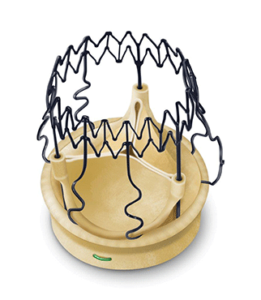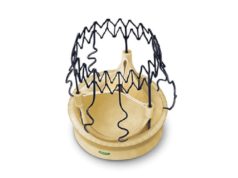
Corey Adams (Health Science Center, St John’s, Canada) and others report in the latest issue of Innovations that the Perceval sutureless aortic valve (LivaNova) is a safe aortic valve replacement option that provides a shorter procedure and recovery time, along with favourable haemodynamics for patients. Their literature review included a meta-analysis of 89 studies.
According to the literature review, a press release reports, a statistically significant reduction in aortic cross-clamp and cardiopulmonary bypass times with Perceval was demonstrated when compared to stented biological aortic valves. The press release adds that Perceval was found to provide safe clinical and haemodynamic outcomes and was also associated with a statistically significant reduction in paravalvular leakage and early mortality. Further, the survival rate was statistically significantly higher for Perceval in two studies when compared to transcatheter aortic valve implantation (TAVI). An analysis of 17 single-arm studies showed that the 30-day mortality rate ranged from 0% to 4.9%, while the five-year survival rate ranged from 71.31% to 85.5% with Perceval.
Lead author Adams comments: “With its distinctive design, the Perceval sutureless valve benefits cardiac surgeons performing aortic valve replacements underscored by the valve’s excellent durability and hemodynamic performance.”
The press release notes that Perceval has been shown to improve patient outcomes by providing reduced procedure time, minimising postoperative complications, enabling shorter hospital stays and reducing the overall cost compared to traditional sutured valves. Engineered to restore natural valve performance, the Perceval valve features a super-elastic stent, which is designed to adapt to the movement of the aorta during the cardiac cycle. Including the period of clinical studies, the Perceval sutureless valve has been in use for a decade and has been implanted in more than 25,000 patients.









